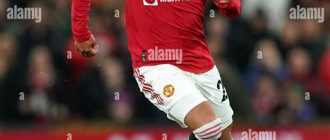The role of a goalkeeper is pivotal in shaping the outcome of a match. Positioned strategically within the defensive zone, this player is tasked with safeguarding the goal and thwarting the opposition’s attempts to score. Their responsibilities extend beyond mere shot-stopping; they must also direct defensive plays, command the penalty area, and provide a crucial link between defense and attack.
In understanding the nuances of this role, it is essential to appreciate the blend of physical agility, mental acuity, and strategic foresight required. This position demands a high level of reflexes and decision-making skills to anticipate and react to various in-game scenarios. Mastery in this area can significantly influence the flow and result of the game.
Understanding Neto’s Role in Football
In the world of soccer, certain players fulfill crucial functions that greatly influence the team’s dynamics and success. One such role involves a player whose primary task is to safeguard the goal area, ensuring that opponents’ attempts to score are thwarted. This position demands exceptional skills in reflexes, positioning, and decision-making. The individual occupying this role acts as the last line of defense, working tirelessly to protect their team’s net from being breached.
To excel in this role, players must exhibit a blend of agility and sharp anticipation. They must be adept at reading the game, reacting swiftly to threats, and organizing the defense to address potential breaches. The effectiveness of this role often determines the overall defensive stability of the team and can be a key factor in achieving success in matches.
Key Attributes of Neto as a Goalkeeper
When evaluating a goalkeeper, several critical qualities come into play. These attributes not only define their effectiveness on the field but also contribute to their overall impact in matches. Understanding these key traits provides insight into how they excel in their role.
Reflexes are essential for any goalkeeper, enabling quick reactions to sudden movements and shots. A strong sense of timing and agility allows them to make crucial saves under pressure.
Positioning plays a significant role in their performance. Proper placement within the goal area ensures they are well-positioned to intercept or block incoming shots. This attribute is vital for maintaining a solid defensive line.
Communication with defenders is another important factor. Effective vocal instructions and coordination help in organizing the defense and managing threats from opposing attackers.
Handling and distribution skills are also crucial. The ability to catch and control the ball securely while initiating counter-attacks with precise passes can significantly influence the game’s flow.
How Neto Influences Game Outcomes

In the realm of sports, the role of a key player can significantly shape match results. A pivotal figure, with specific responsibilities, plays a crucial part in determining the final score. Their influence extends beyond simple statistics, impacting overall team performance and strategy.
- Defensive Stability: This player often provides a solid defensive base, making critical saves and intercepting key passes.
- Distribution Skills: Effective ball distribution helps in transitioning from defense to attack smoothly.
- Decision Making: Quick and accurate decisions during crucial moments can turn the tide of the game.
- Leadership: Demonstrates leadership qualities that can inspire and organize teammates effectively.
Overall, their contributions are integral to achieving positive outcomes, influencing both the tactical approach and the morale of the team.
Comparing Neto to Other Goalkeepers
Evaluating a goalkeeper involves examining various aspects of their performance and skills. When contrasting one player with others in the same role, factors such as reaction time, shot-stopping abilities, and distribution are key elements. Each goalkeeper brings a unique set of strengths to their team, influencing their overall effectiveness on the field.
In terms of reaction time, some goalkeepers excel at making split-second decisions, which is crucial during high-pressure situations. Others might be renowned for their shot-stopping skills, showcasing a remarkable ability to prevent goals through agility and precise movements. Additionally, distribution capabilities can vary, with some players adept at delivering accurate passes and goal kicks, thus aiding their team in transitioning from defense to attack.
By delving into these different attributes, one can assess how various goalkeepers compare and contrast, providing a comprehensive view of their contributions and impact on their respective teams.
Strategic Importance of Neto’s Role
The role of the goalkeeper in modern play is pivotal for any team’s defensive strategy. Their placement and actions can significantly influence the overall dynamics of a match, affecting how the defense and attack interact. This section explores the critical nature of this position and its impact on team performance.
| Aspect | Importance |
|---|---|
| Distribution | Key for transitioning from defense to attack, influencing the speed and efficiency of counterattacks. |
| Shot-Stopping Ability | Crucial for preventing goals and maintaining the team’s competitive edge during high-pressure moments. |
| Organizational Skills | Vital for coordinating the defense, ensuring effective coverage and reducing vulnerability to opposing attacks. |
Recent Performance Trends of Neto

In recent times, there has been a noticeable shift in the performance metrics of this skilled player. His recent matches have showcased a range of impressive feats, reflecting both his adaptability and growth on the field. The data indicates a marked improvement in his ability to influence game outcomes and support his team’s defensive strategies.
Analyzing his latest performances reveals a pattern of consistent reliability. He has exhibited enhanced decision-making skills and an increased capacity to read the game, which has positively impacted his team’s defensive stability. This upward trend highlights his ongoing development and effectiveness in his role.
Future Prospects for His Career
As the player continues to develop, there are several promising directions his career could take. With his current form and skill set, he has the potential to make significant strides in the sport. His versatility and adaptability on the field suggest that he could play a crucial role in various high-profile teams. Additionally, the experience he gains from playing at top levels could further enhance his abilities and open doors to more prestigious opportunities.
Potential Growth Areas
The player’s ongoing improvement could lead to an expanded role in the sport. As he refines his techniques and gains more experience, he might find himself in key positions, influencing crucial matches and contributing significantly to team success. His ability to adapt to different tactical setups could make him an invaluable asset for clubs looking to strengthen their squads.
Future Opportunities
Looking ahead, there are numerous possibilities for his career trajectory. With continued dedication and performance, he could attract interest from elite teams and leagues. His potential to excel in various roles on the field could position him as a sought-after talent in the coming years. His career prospects are bright, and if he maintains his current trajectory, he is likely to achieve notable success in the sport.






